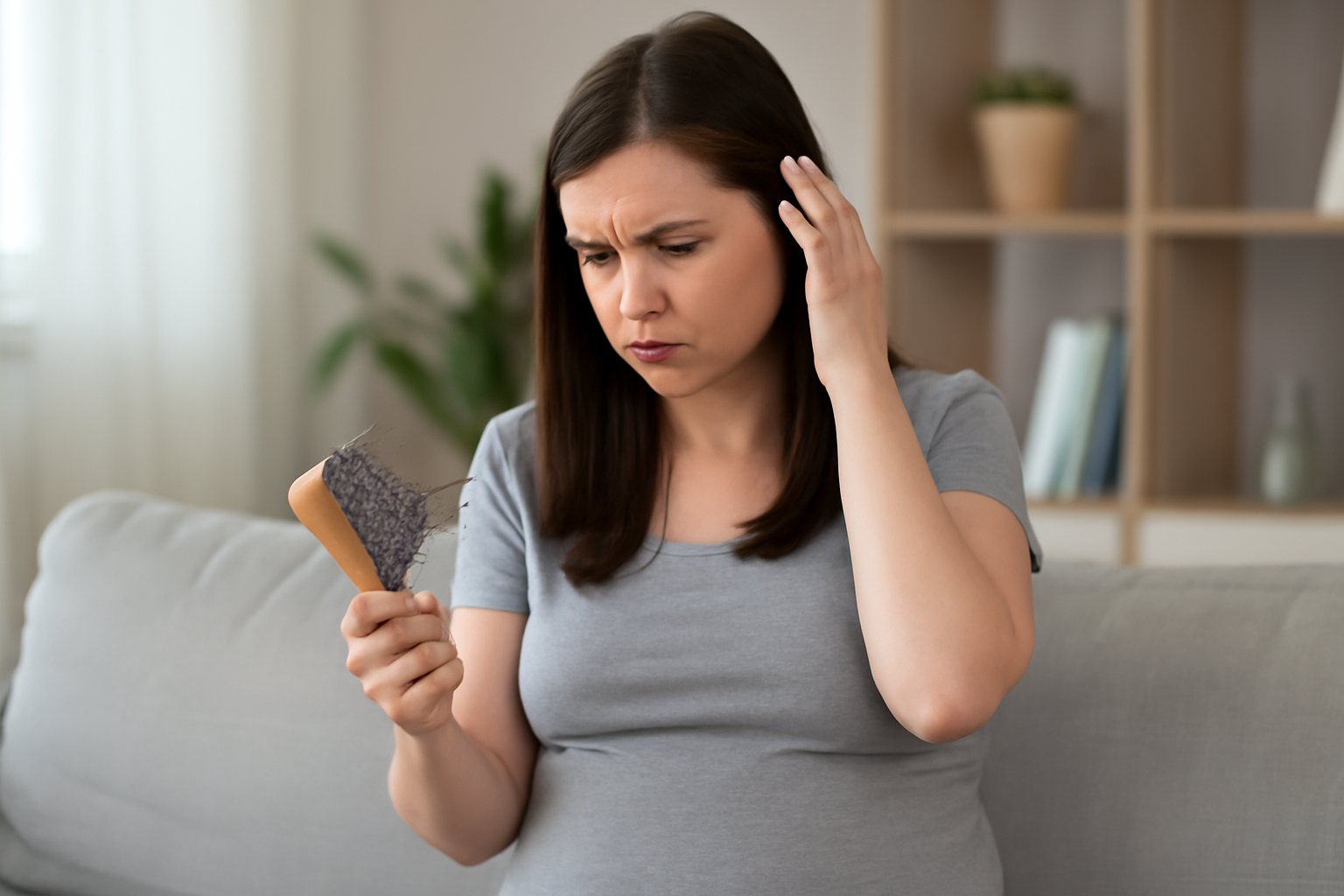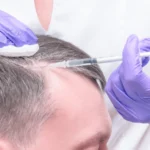Worried about excessive hair fall during pregnancy? You're not alone. Hair fall during pregnancy can be alarming, but it's often a normal part of your body’s changing hormone levels. In this post, you’ll learn the real reasons behind pregnancy-related hair loss, safe ways to manage it, and when it’s time to seek help. Get expert …
Worried about excessive hair fall during pregnancy? You’re not alone. Hair fall during pregnancy can be alarming, but it’s often a normal part of your body’s changing hormone levels. In this post, you’ll learn the real reasons behind pregnancy-related hair loss, safe ways to manage it, and when it’s time to seek help.
Get expert insights, actionable tips, and peace of mind — all in one place.
=
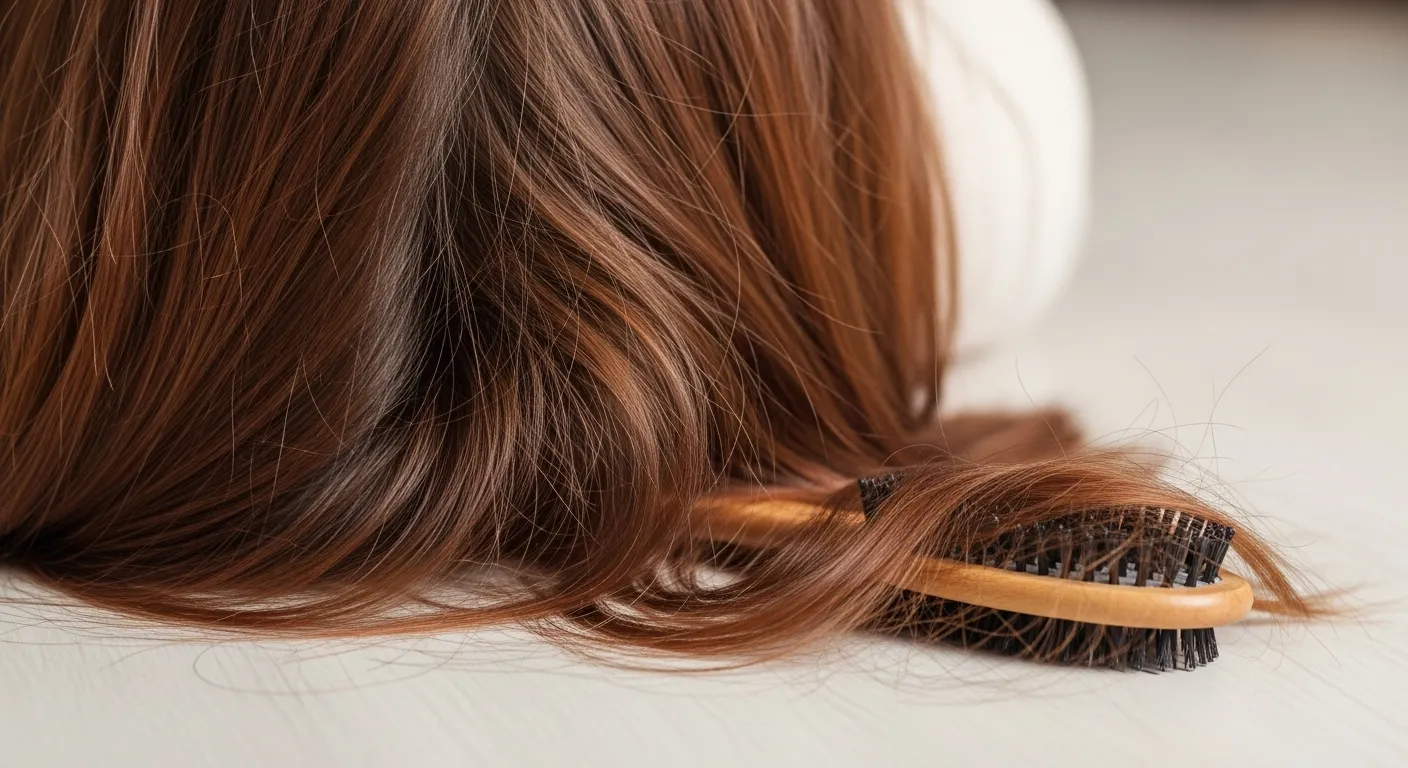
Is Hair Fall During Pregnancy normal?
Yes, some degree of hair fall is normal during pregnancy — but for many women, it’s the timing and volume that can be concerning.
Understanding the Hair Growth Cycle
Hair goes through three main stages:
- Anagen (growth)
- Catagen (transition)
- Telogen (rest and shedding)
Usually, around 85–90% of hair is in the growing phase. However, hormonal changes during pregnancy can disrupt this cycle.
What Changes During Pregnancy?
Increased estrogen levels often prolong the growth phase, making your hair look fuller. But for some women, stress, nutrition deficiencies, or underlying conditions trigger telogen effluvium — a temporary condition where more hair than usual enters the shedding phase.
When Hair Fall Typically Occurs (Trimester-wise Breakdown)
- 1st Trimester: Hair loss may occur due to hormonal shock or morning sickness, affecting nutrition.
- 2nd Trimester: Hair usually looks fuller due to stabilized estrogen levels.
- 3rd Trimester: Mild shedding may return if stress or nutritional gaps persist.
Causes of Hair Fall During Pregnancy
Several factors can contribute to hair loss during pregnancy. Identifying the root cause is key to addressing it safely.
Hormonal Changes (Estrogen & Progesterone Levels)
Fluctuating hormones may either enhance or disrupt hair growth depending on how your body responds. A sudden drop in estrogen (more commonly postpartum) can also trigger increased shedding.
Nutritional Deficiencies
Lack of essential nutrients like:
- Iron
- Zinc
- Vitamin D
- Biotin
can significantly weaken hair follicles. Iron-deficiency anemia is particularly common in pregnant women.
Pro Tip: Ask your OB-GYN for a blood panel to check for deficiencies before taking supplements.
Stress and Emotional Factors
Emotional or physical stress (even the joy of pregnancy!) can push your hair into the telogen phase. This is called stress-induced telogen effluvium.
Pre-existing Thyroid Disorders or PCOS
Conditions like hypothyroidism, hyperthyroidism, or PCOS may worsen hair loss during pregnancy and need to be medically managed.
Medication-Related Shedding
Certain medications — even pregnancy-safe ones — might affect hair growth cycles. Always discuss side effects with your doctor.
Postponed Hair Shedding (Telogen Effluvium)
Some women experience less shedding during pregnancy, but once estrogen drops after birth, the accumulated hair sheds all at once.
How Much Hair Loss Is Too Much?
Understanding what’s normal can prevent unnecessary worry.
What’s Normal vs. Concerning
- Normal: 50–100 hairs/day
- During Pregnancy/Postpartum: Up to 300 hairs/day may be normal temporarily
- Concerning: Noticeable thinning, bald patches, or a receding hairline
Signs You Should See a Doctor
- Suddenly, excessive shedding
- Itchy or inflamed scalp
- Bald spots or uneven patches
Hair Thinning vs. Patchy Hair Loss (Alopecia)
Gradual thinning is usually hormonal. Patchy loss could signal alopecia areata, an autoimmune condition requiring professional care.
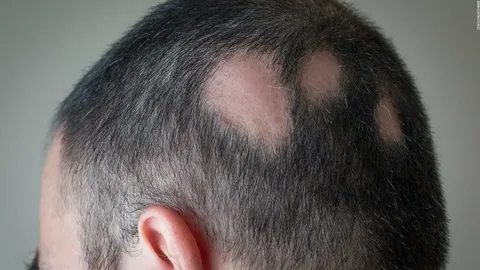
Safe and Effective Ways to Manage Hair Fall During Pregnancy
You can take safe steps to protect your hair without putting your baby at risk.
Balanced Diet for Hair Health
Eat foods rich in:
- Leafy greens (iron, folate)
- Eggs (biotin)
- Nuts & seeds (zinc, protein)
- Fatty fish (omega-3s, vitamin D)
Pregnancy-Safe Hair Products
Choose mild, sulfate-free shampoos, and avoid harsh dyes or chemical treatments.
Scalp Massage and Blood Circulation
Gentle massages with natural oils like coconut or almond oil can stimulate the scalp and improve blood flow.
Gentle Hair Care Practices
Avoid:
- Tight hairstyles
- Frequent heat styling
- Daily washing with strong shampoos
Use a wide-tooth comb and let your hair air dry when possible.
Supplements — When & What’s Safe During Pregnancy
Only take doctor-approved supplements. Common ones include:
Iron & vitamin D
Prenatal vitamins
Biotin (if cleared by OB-GYN)
Key Tests to Ask For during pregnancy hair fall
- Iron & Ferritin
- Thyroid panel
- Vitamin D, B12
- Zinc levels
These tests help rule out treatable causes.
Hair Fall After Pregnancy: What to Expect
Postpartum Hair Shedding Timeline
Most women experience heavy shedding 1–4 months postpartum, due to hormone levels normalizing.
When Will Hair Regrow Naturally?
Hair typically begins regrowing:
- Around 6 months postpartum
- Full recovery in 9–12 months
Note: Not all hair returns — some women report permanent texture changes.
Tips to Reduce Postpartum Hair Loss
- Continue prenatal vitamins
- Stay hydrated and well-rested
- Gentle combing and scalp care
When to Consult a Doctor or Dermatologist
Red Flags Not to Ignore
- Sudden, patchy baldness
- Inflammation or pain on the scalp
- Hair loss with other symptoms like fatigue, cold intolerance
Medical Conditions Behind Hair Loss
- Thyroid dysfunction
- Iron deficiency anemia
- Autoimmune disorders
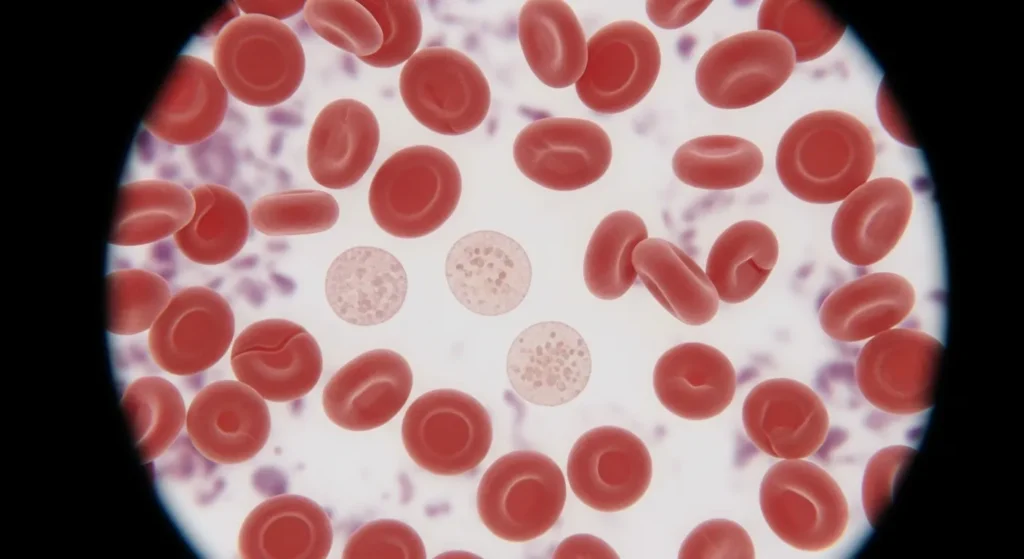
Role of a Trichologist or Dermatologist
A specialist can:
- Conduct lab tests
- Prescribe safe treatments
- Monitor long-term recovery
FAQs About Hair Fall During Pregnancy
Does hair fall stop after delivery?
Usually, yes — postpartum hair shedding peaks at 3–4 months and stabilizes within a year.
Can prenatal vitamins help with hair loss?
Yes, especially if hair loss is due to iron or vitamin deficiencies.
Is oiling hair safe during pregnancy?
Yes, using natural oils is safe and can promote circulation.
What shampoo is safe to use while pregnant?
Use sulfate-free, fragrance-free shampoos. Avoid medicated shampoos unless prescribed.
Should I change my hairstyle during pregnancy?
Avoid tight styles like buns or braids that strain the scalp. Opt for loose, low-maintenance styles.
Conclusion: Reassurance & Recovery Are Possible
Hair fall during pregnancy can be unsettling, but it’s often a temporary and manageable issue. With proper nutrition, safe hair care, and professional advice, you can maintain healthy hair throughout your pregnancy journey.
If you’re experiencing unusual or persistent hair fall during pregnancy, don’t wait.
Book a consultation with Dr. Uzma Irfan, an ISHRS-certified surgeon in Islamabad today, and get personalized care, safe treatment recommendations, and peace of mind for you and your baby
Worried about hair fall during pregnancy? Don’t wait. Book a consultation with Dr. Uzma Irfan in Islamabad for expert evaluation and customized treatment options, designed with pregnancy safety in mind.

